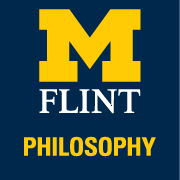Research Fellow-4
Job Details
The Talent Acquisition department hires qualified candidates to fill positions which contribute to the overall strategic success of Howard University. Hiring staff “for fit” makes significant contributions to Howard University’s overall mission. At Howard University, we prioritize well-being and professional growth. Here is what we offer:
- Health & Wellness: Comprehensive medical, dental, and vision insurance, plus mental health support
- Work-Life Balance: PTO, paid holidays, flexible work arrangements
- Financial Wellness: Competitive salary, 403(b) with company match
- Professional Development: Ongoing training, tuition reimbursement, and career advancement paths
- Additional Perks: Wellness programs, commuter benefits, and a vibrant company culture
Join Howard University and thrive with us! https://hr.howard.edu/benefits-wellness
JOB PURPOSE:
The NDCF Computational Research Fellow will participate in the Neurodegeneration Computational Fellows Training Program (NDCF) at Howard University, developing and applying computational skills in neuroscience research. Under the mentorship of host labs, the fellow will contribute to analyzing datasets related to neurodegenerative diseases, such as Alzheimer’s, Parkinson’s, or traumatic brain injury (TBI), advancing the understanding of disease mechanisms. This role supports the program’s mission to train researchers in advanced mathematics, data analysis, and bioinformatics for neurodegeneration research.
SUPERVISORY AUTHORITY:
This position has no supervisory authority. The fellow will work directly under the supervision of a principal investigator or mentor in a host lab affiliated with the NDCF program, receiving guidance on research tasks and computational training.
NATURE AND SCOPE:
The NDCF Computational Research Fellow will engage in interdisciplinary research within a host lab at Howard University or a partner institution, such as NIH/NINDS, focusing on computational approaches to neurodegeneration. The fellow will gain hands-on experience analyzing neurophysiological, genomic, or imaging data using tools like Python, R, or machine learning frameworks. The fellow will collaborate with researchers, other fellows, and faculty, participating in lab meetings and NDCF symposia. The role is designed to support professional growth by developing skills in data analysis and contributing to research publications. External opportunities may include presenting at conferences or collaborating with partners in the Neurodegeneration Challenge Network (NDCN) under the Chan Zuckerberg Initiative.
PRINCIPAL ACCOUNTABILITIES:
- Assist in analyzing datasets (e.g., MRI, genomic, or microbiome data) using computational tools under the guidance of a mentor, identifying patterns or biomarkers in neurodegenerative diseases.
- Learn and apply statistical or machine learning methods to support research on disease mechanisms, following lab protocols.
- Support data processing tasks, such as image analysis or sequence alignment, using provided software or scripts.
- Prepare research summaries and present findings at NDCF symposia, lab meetings, or external conferences.
- Contribute to team discussions, collaborating with lab members to integrate computational and experimental findings.
- Maintain accurate records of research activities and adhere to ethical standards in data handling and reporting.
CORE COMPETENCIES:
- Computational Aptitude: Basic familiarity with programming (e.g., Python, R) or data analysis tools, with a strong interest in learning advanced computational techniques.
- Analytical Thinking: Ability to approach complex datasets with curiosity and apply structured methods to derive meaningful insights under mentorship.
- Collaboration: Strong interpersonal skills to work effectively in interdisciplinary teams, including researchers, students, and faculty.
- Communication: Clear written and verbal communication to present research progress and engage with scientific audiences.
- Adaptability: Eagerness to acquire new skills and adapt to evolving research tools and methodologies in a training-focused environment.
MINIMUM REQUIREMENTS:
- Education: Bachelor’s or Master’s degree in neuroscience, biology, computer science, bioinformatics, or a related field.
- Experience: Some exposure to programming, data analysis, or neuroscience research through coursework, internships, or personal projects. No prior expertise required.
- Skills: Basic familiarity with computational tools (e.g., Python, R, MATLAB, or command-line interfaces) or a strong interest in learning these skills. Introductory knowledge of statistics or data visualization is a plus.
- Other: Demonstrated interest in neurodegeneration research and the ability to work collaboratively under mentorship guidance.
Compliance Salary Range Disclosure: $45,000-$55,000
Whoops! This job is not yet sponsored…
Or, view more options below
View full job details
See the complete job description, requirements, and application process
Express interest in this position
Let Howard University know you're interested in Research Fellow-4
Get similar job alerts
Receive notifications when similar positions become available











.png&w=128&q=75)



